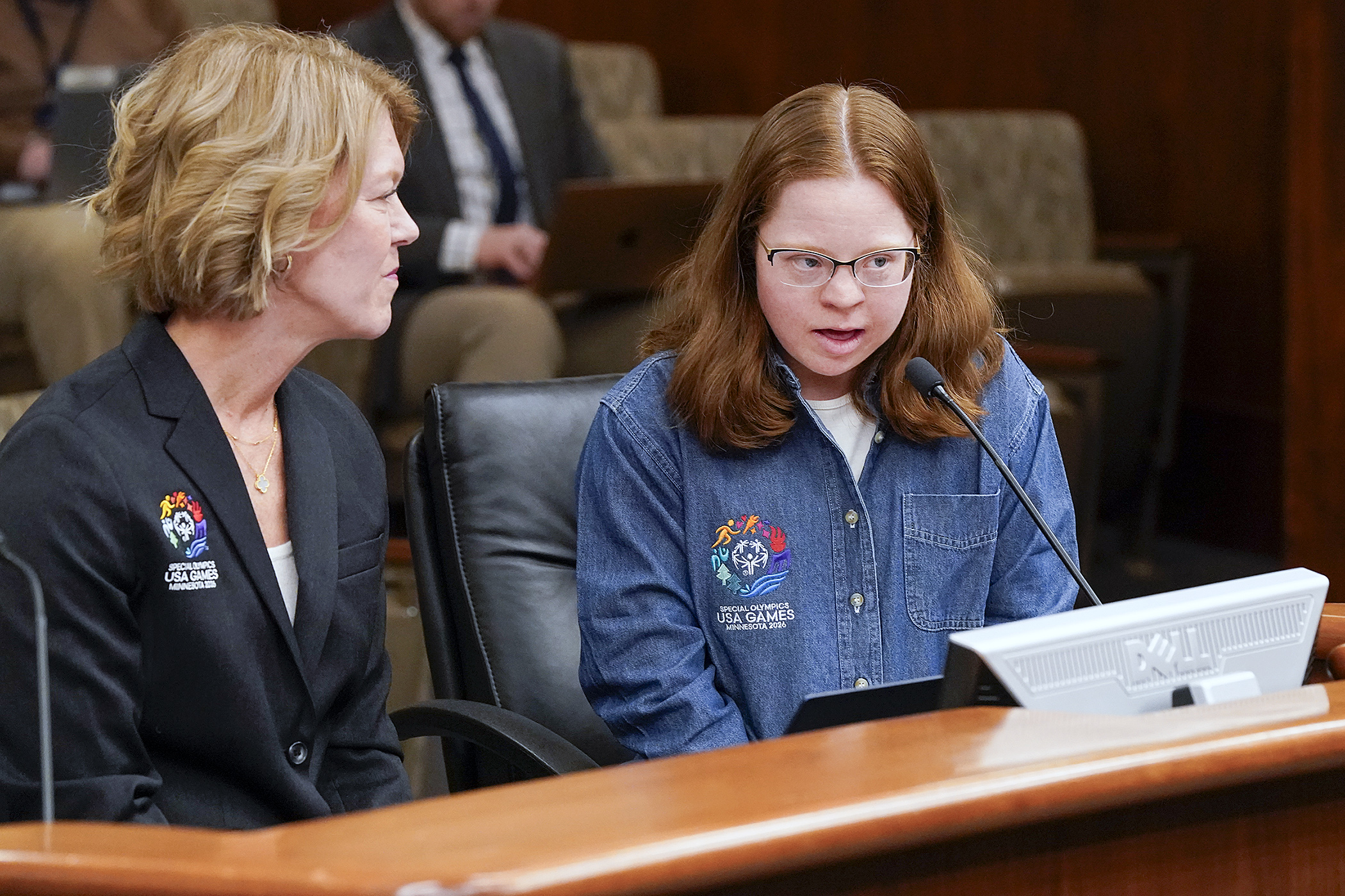With 2026 Special Olympics USA Games on way to Minnesota, organizers seek help from state to clear final funding hurdle

The Twin Cities should start preparing for a “life-changing” event coming in two years.
That’s the message from Abby Hirsch, who spoke in support of a bill that would provide a one-time $4 million appropriation in fiscal year 2025 to Explore Minnesota for a grant to the 2026 Special Olympics USA Games.
Hirsch gave a personal account Wednesday to the House Economic Development Finance and Policy Committee about her “dream come true,” when she represented Minnesota in the 2014 Special Olympics USA Games in swimming and weightlifting competitions.
“Hosting the 2026 USA games will be incredible. It will put Minnesota on a national stage and shine a light on the abilities of people who have an intellectual disability,” she said.
The committee laid HF4123 over for possible inclusion in a committee finance bill. Rep. Leon Lillie (DFL-North St. Paul) is the sponsor.
Scheduled for June 20-26, 2026, the games are to take place at the University of Minnesota and other venues, including the National Sports Center in Blaine.
The event is expected to draw more than 4,000 athletes from all 50 states, plus parts of Canada and the Caribbean. They will compete in 19 team and individual sports. When including family members, coaches, fans, and volunteers, the event is projected to draw more than 100,000 people.
Christy Sovereign, CEO of the 2026 Special Olympics USA Games, said about 90% of costs for hosting the games will come from sponsoring organizations and private donations.
“This event is an important and unique opportunity for Minnesota to elevate an event focused on the disability community,” said Rep. Sandra Feist (DFL-New Brighton). She said the games are expected to have a $75 million economic impact in the Twin Cities.
Hirsch also said the event will focus attention on other issues important to people with intellectual disabilities: promoting unified sports in schools, increasing health and wellness, and increasing employment opportunities for neurodivergent people and others with intellectual disabilities.
Sovereign said that only 18% of people with intellectual disabilities are employed at a level that matches their abilities.
Related Articles
Search Session Daily
Advanced Search OptionsPriority Dailies
Speaker Emerita Melissa Hortman, husband killed in attack
By HPIS Staff House Speaker Emerita Melissa Hortman (DFL-Brooklyn Park) and her husband, Mark, were fatally shot in their home early Saturday morning.
Gov. Tim Walz announced the news dur...
House Speaker Emerita Melissa Hortman (DFL-Brooklyn Park) and her husband, Mark, were fatally shot in their home early Saturday morning.
Gov. Tim Walz announced the news dur...
Lawmakers deliver budget bills to governor's desk in one-day special session
By Mike Cook About that talk of needing all 21 hours left in a legislative day to complete a special session?
House members were more than up to the challenge Monday. Beginning at 10 a.m...
About that talk of needing all 21 hours left in a legislative day to complete a special session?
House members were more than up to the challenge Monday. Beginning at 10 a.m...